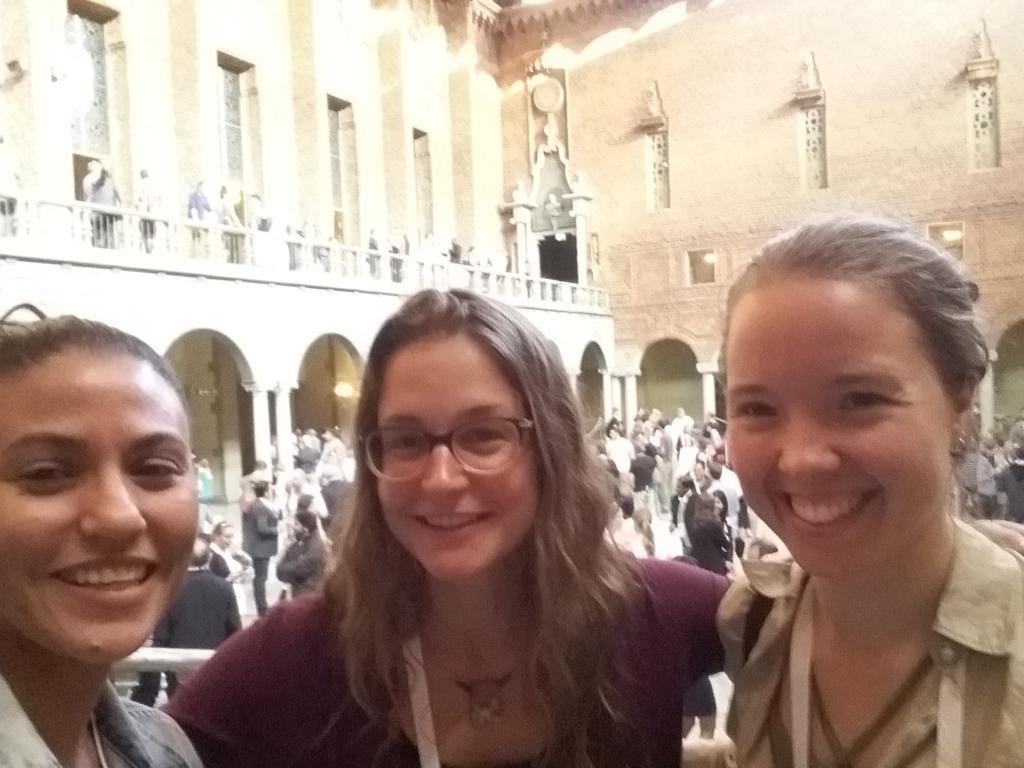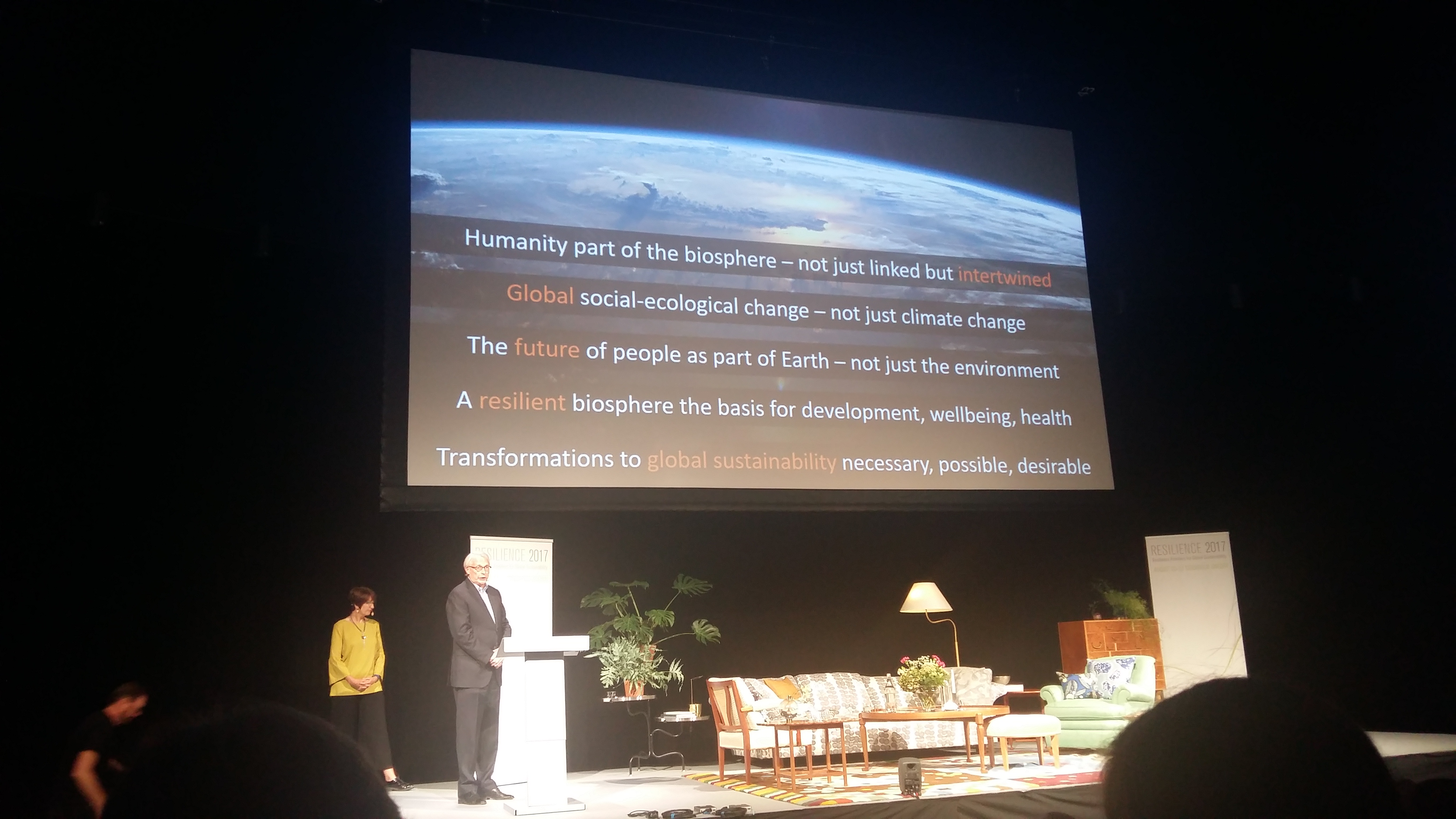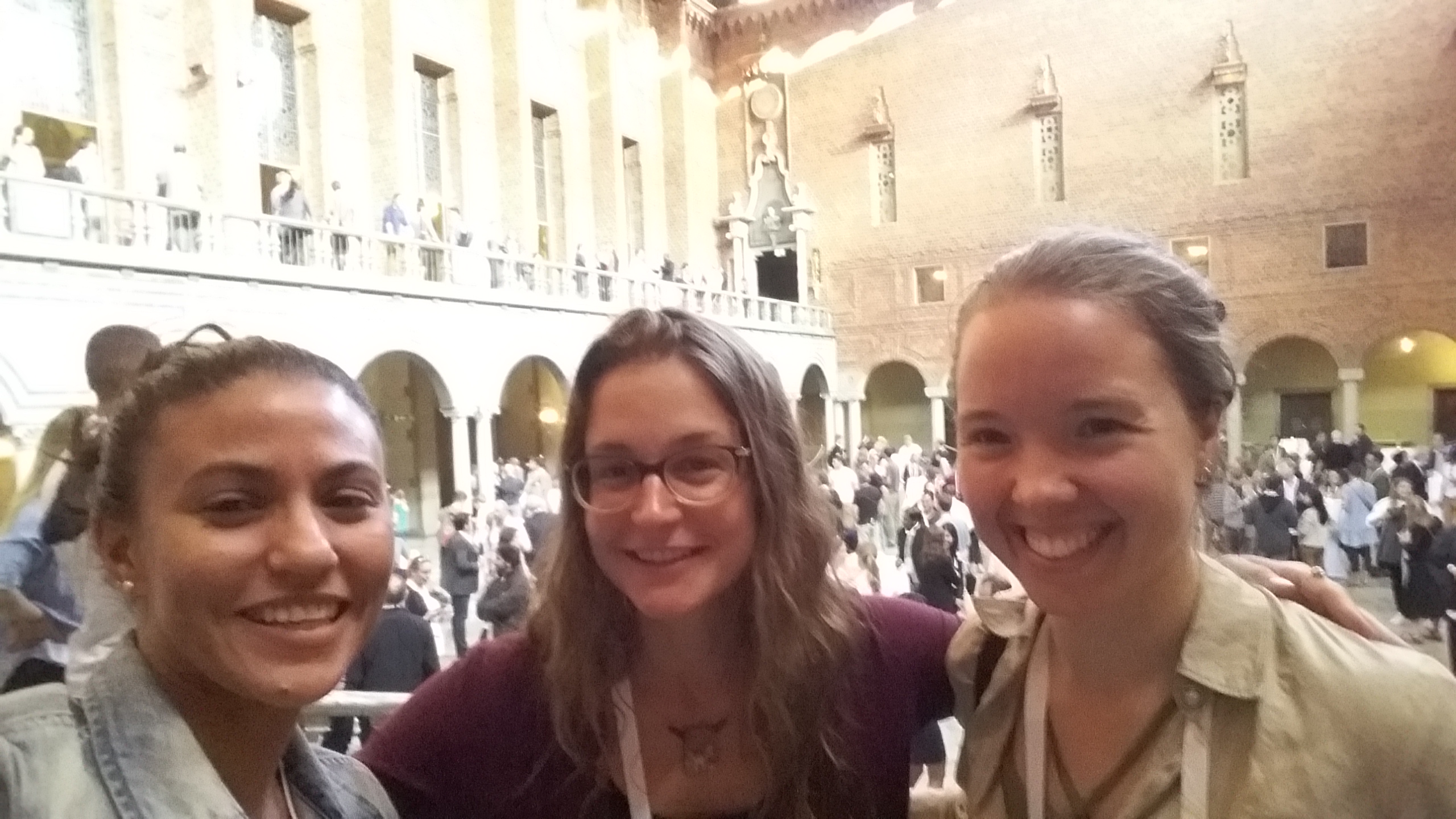Participation in the Resilience 2017 Conference: Resilience Frontiers, 20-23 August 2017

On 20-23 August 2017, Cherié Forbes, a doctoral candidate at the Plant Conservation Unit (PCU), participated in the 4th triennial Resilience 2017 Conference based in Stockholm, Sweden (http://resilience2017.org/). She was one of ca. 1000 international conference delegates of which ca. 100 were PhD and early career researches from 22 different countries worldwide. This Conference was co-hosted by the Stockholm Resilience Centre and the Resilience Alliance who advocate resilience thinking as central to the understanding of social-ecological systems (SES). One of the main focuses of the Resilience 2017 Conference was on global sustainability challenges and opportunities, which today are heavily influenced by the speed, scale and connectivity of the Anthropocene. Over the four days, five major Conference themes [1] were explored and Cherie's poster presentation fell within the Poster session ‘Ecosystem services and landscapes’, which was part of the 4th conference theme titled, ‘Approaches and methods for understanding social-ecological system dynamics’.

Professor Carl Folke (Science Director and co-founder of the Stockholm Resilience Centre) and Professor Kate Brown (University of Exeter) addressing conference delegates at the opening plenary of the Resilience 2017 Conference, Resilience Frontiers. The two speakers leave us with a powerful message: "Humanity is part of the biosphere, not just linked, but deeply intertwined with it. We are dealing with global social-ecological change, not just climate change. We should think about the future of people as part of Earth. A resilient biosphere is the basis for development, wellbeing and health. Therefore, transformations to global sustainability are necessary, possible and desirable.”
Cherié’s poster presentation showcased preliminary pollen and charcoal findings from her PhD research. Her research study uses the Groot Winterhoek Wilderness Area (a formally protected water catchment) and surrounding agricultural lands in the Cape Floristic Region (CFR) of the Western Cape, South Africa, as a SES case study to inform sustainable land-use management. The CFR comprises conservation and agricultural landscapes that provide essential attributes of ecological systems upon which societies depend, i.e. Ecosystem Services (ES; such as biodiversity, water regulation and soil erosion regulation). ES play a critical role in food and water security, economic development and overall resilience. However, ES would have been impacted by a long history of climate change and land-use. In her study, changes in ES in response to drivers such as local level climate variability and land-use change (fire, herbivory, crop cultivation and conservation) will be reconstructed over centennial-millennial timescales using palaeo-proxies such as fossil pollen, charcoal, dung fungal spores, minerogenic sediment accumulation rate and geochemical/magnetic markers. Furthermore, semi-structured interviews with local commercial farmers and key land management institutions such as CapeNature and local government will be used to define the environmental problems, explore perceived resilience of the SES and explore implications for land-use management (climate change adaptation and restoration options). Palaeoecological, climate and land-use data will be used to model future scenarios of changes in ES under various land-use and climate change options, with the hope of informing management of the landscape for both biodiversity conservation and sustainable agriculture. Results from her study will add to the limited palaeoecological record of this vulnerable biodiversity hotspot and if possible, identify management thresholds for sustainable land-use management. This case study will investigate the potential of increasing resilience to negative impacts of future climate change by encouraging multidisciplinary social-ecological research to better understand SES.
Cherié felt that the Resilience 2017 Conference was a fantastic opportunity for young scholars and senior academics to engage with policy, business and practice, and to explore and advance a common agenda on resilience thinking and complex adaptive social-ecological systems for sustainable development. She believes that it is important for an early career researcher such as herself to be exposed to others’ research and views at an international level. This is especially true as it allowed her to better contextualise her own research and created an opportunity to determine how her research aligns with an international agenda for resilience and sustainable development. Cherié thought that it was a valuable experience to be able to gauge where her research and personal development goals lie in terms of being a change agent and biodiversity ambassador for conservation, resilience-thinking and sustainability issues in South Africa.

Conference delegates mingling at the reception which took place at the City Hall hosted by the City of Stockholm. From left to right: Cherié Forbes (PCU PhD student at UCT), Hannah Fried-Petersen and Sophia Renes (PhD students at the Swedish University of Agricultural Sciences).
Cherié would like to acknowledge the Adaptation Network and PCU for providing funding to attend this Conference. Be sure to watch this space for more insights revealed by Cherié in a follow up article that will be published via the Adaptation Network’s newsletter in weeks to come. Please visit http://resilience2017.org/ to learn more about some of the interesting discussions and important messages which were generated during the Conference.
~ Article and images by Cherié Forbes
[1] The Resilience 2017 Conference explored five major themes: 1. Social-ecological transformations for sustainability; 2. Connectivity and cross-scale dynamics in the Anthropocene; 3. Multi-level governance and biosphere stewardship; 4. Approaches and methods for understanding social-ecological system dynamics; and 5. Cross-cutting perspectives on resilience.
